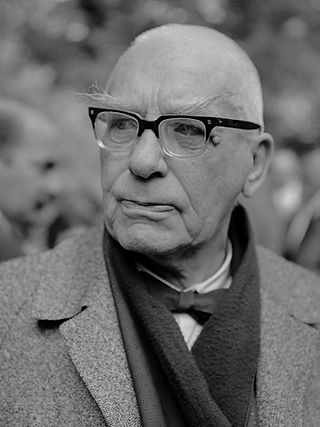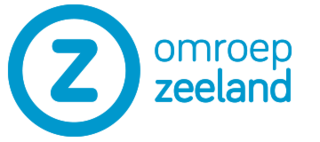International Socialists is a revolutionary, Trotskyist organisation in the Netherlands. It is part of the International Socialist Tendency led by the British Socialist Workers Party.

Greater Netherlands is an irredentist concept which unites the Netherlands, Flanders, and sometimes Brussels. Additionally, a Greater Netherlands state may include the annexation of the French Westhoek, Suriname, formerly Dutch-speaking areas of Germany and France, or even the ethnically Dutch and/or Afrikaans-speaking parts of South Africa. A related proposal is the Pan-Netherlands concept, which includes Wallonia and potentially also Luxembourg.

The Independent Socialist Party was a revolutionary socialist political party in the Netherlands.

The Socialist Party, also called the "Kolthek party" after its founder Harm Kolthek, was a Dutch revolutionary syndicalist political party. It was represented in Parliament between 1918 and 1922.

Hildebrand Lucien (Hildo) Krop was a prolific Dutch sculptor and furniture designer, widely known as the city sculptor of Amsterdam, where his work is well represented.

Gerrit Mannoury was a Dutch philosopher and mathematician, professor at the University of Amsterdam and communist, known as the central figure in the signific circle, a Dutch counterpart of the Vienna circle.

HSV ODIN '59 is a football club from Heemskerk, Netherlands. The club was founded in 1959 and is currently playing in the Derde Divisie Saturday. ODIN stands for Ons Doel Is Nuttig.
Willem Philippe Maria "Wim" Zaal was a Dutch journalist, essayist, translator and literary critic. He was literary editor of Elsevier for years.

Wilhelmina Drucker was a Dutch politician and writer. One of the first Dutch feminists, she was also known under her pseudonyms Gipsy, Gitano, and E. Prezcier.
The Libris Literature Award or Libris Prize is a prize for novels originally written in Dutch. Established in 1993, it is awarded annually since 1994 by Libris, an association of independent Dutch booksellers, and amounts to €50,000 for the winner. It is modeled on the Booker Prize, having a longlist and a selection process which shortlists six books. The author of each shortlisted book receives €2,500.
The Jan Campert Prize is a Dutch literary prize established in 1948, which is awarded annually for works of poetry by the Jan Campert Foundation. The foundation was created in 1948 to honour Jan Campert, considered by many to be an icon of the Dutch resistance.

Harm Kolthek Jr. (1872-1946) was a Dutch printer, journalist, trade unionist and libertarian socialist politician. Kolthek led the syndicalist federation of trade unions, the National Labor Secretariat (NAS), from 1907 to 1913. He later founded and led the Socialist Party, sometimes called the "Kolthek party" after its founder, and served in the Netherlands House of Representatives for this party from 1918 to 1922.
Eelco Alta was a Frisian clergyman, theologian, and veterinarian.

Omroep Zeeland is a public broadcaster located in Zeeland, Netherlands. Founded in 1988, the media organization is active in television, radio, and internet. The audience is on average slightly older than that of the other Dutch regional broadcasters.
Jan van Raalte is a Dutch football manager of amateur squads and formerly a professional footballer, mostly in the Eerste Divisie and one season with Cambuur Leeuwarden in the Eredivisie. Van Raalte won the Rinus Michels Award for coaching amateur teams. He lives in Harkema where he finished his midfield player career.

The Boekenleeuw is a Flemish literary award for the best book in children's literature by a Flemish author. The award is given by Boek.be and the winner receives €2,500.
In the Netherlands, the Vlag en Wimpel award is an honourable mention awarded by either the jury of the Gouden Griffel and Zilveren Griffel awards or the jury of the Gouden Penseel and Zilveren Penseel awards. The award is organised by the Collectieve Propaganda van het Nederlandse Boek. Starting in 2022, instead of Flags and Pennants, Bronze Griffels and Bronze Brushes will be awarded. The name change is intended to underscore the purpose of these awards: to highlight the best children's books.
Ecotribe Teuge is a collective of people living on a squatted terrain in the Dutch countryside. It is located on the edge of the village of Teuge, in the province of Gelderland. The buildings were constructed by the Nazis and formerly used to house Moluccan soldiers. The site was occupied in 2001, when people began to live there in an off-the-grid and self-sufficient manner. Since 2018, there are plans by the province to develop the terrain.

The Tabakspanden are a group of buildings standing on the Spuistraat in central Amsterdam, adjacent to the Keizerrijk and Wijdesteeg alleyways. Named after a former owner, the speculator Hendrik Tabak, they were mostly squatted from 1983 onwards, although the artist Peter Klashorst also rented an apartment and gallery space. The best known building was Spuistraat 199, known as the Slangenpand (Snakehouse) because of the large mural which covered the front exterior. In 2015, the squatters were evicted and the buildings were mostly demolished prior to redevelopment. The new project is known as De Keizer and has 69 apartments, a restaurant and a gallery. Two of the buildings are registered as rijksmonumenten.
Hans van Hooft Sr. is a Dutch politician. After serving on the Nijmegen city council for the Socialist Party (SP) from 1976 to 2002, he was an alderman in this city until 2010.











